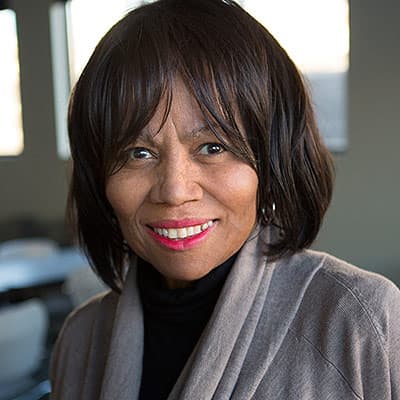Advertisement
Segregation A Troubling Part Of Fenway's History
Resume
This week as Fenway Park, the home of the Sox, celebrates its 100th anniversary, we look back at a troubled part of Red Sox history: it remained a segregated, whites-only team longer than any other Major League Baseball team.
Jackie Robinson made history as the player who broke the color barrier in the Majors when he started with the Brooklyn Dodgers in 1947. Just two years earlier, he was one of the first to be given a tryout — by the Red Sox.
On April 16, 1945, under pressure from the media and the Boston City Council to at least give black players a tryout, the Red Sox did hold a tryout at Fenway for Robinson and two other black ballplayers. It was brief. They left, expecting to hear whether they'd made the team or not. But they never heard from the Sox again.
But baseball, and the world, heard from Robinson. Robinson's success opened the doors. Major League Baseball began hiring black players — every team except Boston. Tom Yawkey, the South Carolina businessman who owned the Sox, kept his team segregated. Finally, on July 21, 1959, the Sox called up minor leaguer Pumpsie Green.
"It was sort of deafening, the crowd was yelling, I was standing on third — it was a heck of a time, it was one of the greatest moments in my life."
'Pumpsie' Green, on hitting a triple during his first bat at Fenway
"Well, as you can imagine, it was an exciting time in my life," Green said. "It was hectic for the most part. I was entering some territory I wasn't used to."
Elijah "Pumpsie" Green is now 78 years old. He was 26 when his turn at history came. The team was on the road in Chicago.
A couple of weeks later, when the Red Sox arrived in Boston, cameras were everywhere at the airport. Green assumed that that was the norm for a major league team returning home.
"We landed, they lit the plane up," he said. "I was right in the spotlight. It was surprising."
By the time his first bat came at Fenway Park on Aug. 4, he'd realized just how big his story was. At the time, Fenway Park was averaging an attendance of 13,000 per home game. That night, an estimated 21,000 fans were in the stands.
"My nerves were a wreck for one thing — the first black and all this stuff," Green said. "When I was walking up to home plate, I received a standing ovation. One thing I had in my mind: I didn't want to strike out and walk all the way back to the dugout. I hit one off the left-center field fence, the Green Monster, for a triple.
"I felt great. It was sort of deafening, the crowd was yelling, I was standing on third — it was a heck of a time, it was one of the greatest moments in my life."
One week after Pumpsie's arrival, the Sox brought up a second black player: Earl Wilson.
Wilson went on to become a star, the first African-American to pitch a no-hitter in the American League.
Green's career was less illustrious.
Because of the racial politics of the times, Green and Wilson were roommates on the road. They remained in contact over the years until Wilson's death in 2005.
Racial intolerance was the norm in those days, and Green, who had experienced it in the minors, said he found Boston "as welcoming as any city I'd been in."
Green said his relationship with his teammates was fine. Early on, one of them, the legendary Ted Williams, sought Green out as his warm-up partner.
"He was a good guy," Green said. "I liked Ted. He appreciated me. It just happened, that's all."
Green spent five years in the majors as a second baseman, pinch hitter and shortstop, four of them with Boston and the last year with the Mets.
After retiring from baseball, Green returned home to California, where he worked for the Berkeley school system for 30 years, as a teacher, coach and supervisor.
"If I had to do it over again, I'd do the same thing the same way," he said.
Green and his wife of 55 years, Marie, will be back in Boston this week for Fenway Park's centennial celebration. Green said the mystique of Fenway Park is what makes it so loved. In his words, it's a historic sight, especially if you love baseball.
More:
This program aired on April 18, 2012.
